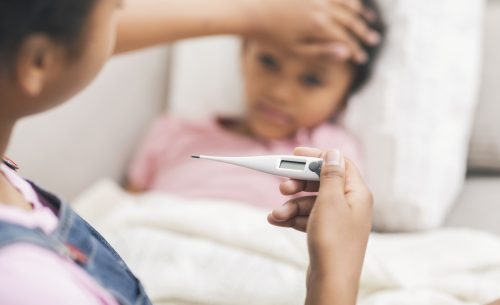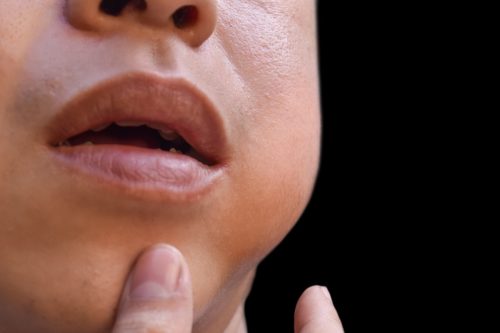Officials Issue Alert Amid “Incredibly Contagious” Mumps Outbreak—These Are the Symptoms

From COVID and the flu to measles and norovirus, there’s no shortage of illnesses to be on the lookout for these days. But another new concern just popped up: On March 5, the New Jersey Department of Health (NJDOH) issued an alert urging individuals to be wary of mumps. According to the press release, officials are investigating an outbreak of eight suspected cases of mumps in the state. They claim that all of these cases come from one family cluster located in Hunterdon County, and may be related to recent international travel.
Mumps is a “highly contagious” illness that is caused by a paramyxovirus, according to the Centers for Disease Control and Prevention (CDC). The agency says that staying up-to-date with measles-mumps-rubella (MMR) vaccination is still the best way to prevent mumps and mumps complications, which could include permanent deafness, encephalitis, or even death.
“As a physician and as a mom, I understand what it is like to try to keep your kids and your family healthy. The best way to keep you and your loved ones safe is to get the MMR shot. If you or your family have not gotten the shot, now is the time,” NJDOH Acting Health Commissioner Kaitlan Baston, MD, said in a recorded public service announcement.
Baston added, “These viruses are incredibly contagious, so if you suspect you may have measles, mumps, or rubella, it is important to call ahead before visiting any health care provider or facility so they can take special precautions.”
Officials from the NJDOH are asking individuals to be on the lookout for potential mumps symptoms—which the CDC says typically appear 16 to 18 days after infection. Read on to discover the signs you should pay close attention to.
RELATED: Norovirus Cases Spiking Across U.S.—These Are the Symptoms.
1
Fever

Mumps can start with a fever, according to the NJDOH release. The CDC says this will likely be a low-grade fever that may last around three to four days.
RELATED: Measles Now Spreading in 9 States Amid “Staggering” Outbreak, CDC Warns.
2
Aches

Many people infected with mumps often “feel tired and achy,” the CDC warns. This could mean a headache or muscle aches.
RELATED: Listeria Outbreak Has Hit 11 States—These Are the Warning Signs of Listeriosis.
3
Swelling

But the symptom mumps is “best known” for is swelling. The virus usually causes swelling in one or both parotid salivary glands, which are located in the cheek and jaw area. Most people experience puffy cheeks and a tender, painful jaw as a result.
“The swollen tissue pushes the angle of the ear up and out,” the CDC explains. “As swelling worsens, the angle of the jawbone below the ear is no longer visible. Often, the jawbone cannot be felt because of swelling of the parotid.”
4
Loss of appetite

Another sign of mumps is a loss of appetite. This can appear before swelling or after, as some of those infected may “be unable to eat because of jaw pain,” according to the CDC.
Best Life offers the most up-to-date information from top experts, new research, and health agencies, but our content is not meant to be a substitute for professional guidance. When it comes to the medication you’re taking or any other health questions you have, always consult your healthcare provider directly.